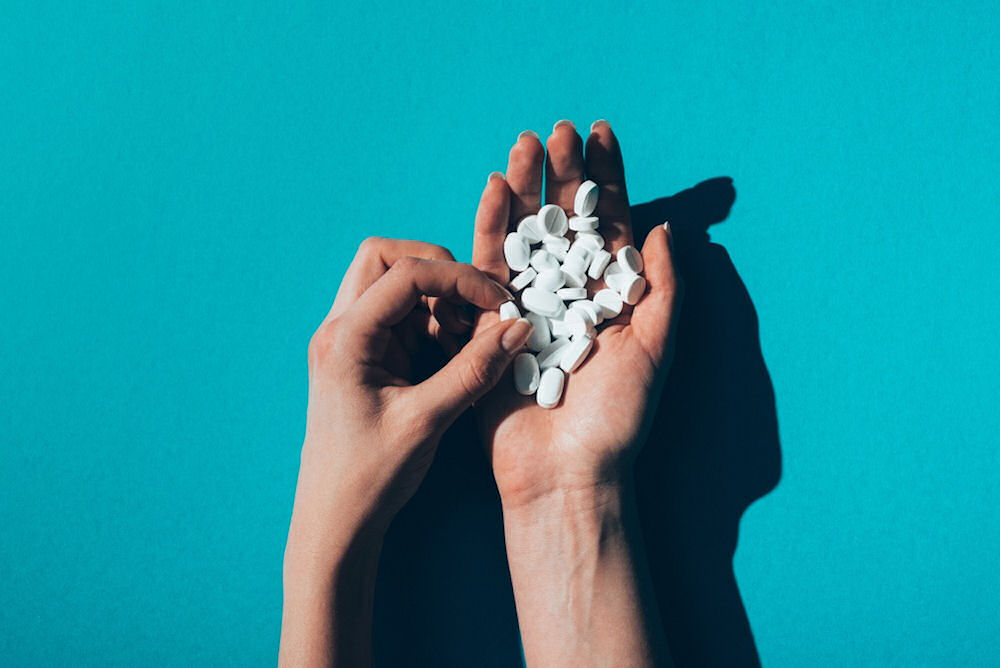International Overdose Awareness Day is a global event held on August 31st each year to raise awareness about drug overdose and its impact on individuals, families, and communities. The day serves as a reminder of the growing number of individuals who need help with addiction and the steps that we can take to reduce the risk of overdoses.
This day is an opportunity for us to come together and educate ourselves about the signs and symptoms of an overdose, as well as the resources available to support anyone in need of substance abuse treatment.
When Was International Overdose Awareness Day Started?
Jump to Section
International Overdose Awareness Day is an annual event that was launched in 2001 by the Penington Institute in Australia to bring attention to the devastating impact of drug overdose and reduce the stigma surrounding this issue. The event has since spread worldwide, and each year, individuals and organizations come together to raise awareness and commemorate loved ones lost to an overdose.
What is this year’s Theme for International Overdose Awareness Day?
This year’s theme for International Overdose Awareness Day is “Time to Remember. Time to Act,” which serves as a call to action for individuals and communities to take steps to prevent overdose and support those struggling with addiction.
The Importance of International Overdose Awareness Day

According to data from the Centers for Disease Control and Prevention (CDC), drug overdose deaths increased by roughly 30% from 2019 to 2020, with over 93,000 deaths recorded in 2020 alone. These numbers are alarming and highlight the urgent need for prevention and intervention strategies. Other alarming statistics and facts about overdose include the following:
- Over one million people have died as a result of drug overdose since 1999.
- Opioids were involved in 75.4% of all drug overdoses that resulted in death in 2021. This represents 106,699 people.
- In 2021, it was estimated that 45 people died every day from overdosing on prescription opioids.
- Fentanyl, a potent opioid, is approximately 50 times as strong as heroin. Fentanyl and fentanyl analogs are being mixed into counterfeit opioid pills, heroin, cocaine, and methamphetamine contributing to overdoses.
Overdose Initiatives From SAMHSA
SAMHSA is one organization that is working towards this goal, with various initiatives aimed at reducing the impact of overdose. For example, SAMHSA’s Opioid State Targeted Response and State Opioid Response grants provide states with funding to address the opioid crisis through prevention, treatment, and recovery services. Efforts such as these are critical in helping communities come together to tackle this issue from multiple angles.
How to Recognize an Overdose
To recognize an overdose, it is crucial to understand the signs and symptoms. An overdose can occur when an individual takes too much of a drug or uses a combination of drugs that interact dangerously.
Common signs of an overdose include:
- Slowed or difficulty breathing
- Blue lips or nails
- Confusion
- Nausea or vomiting
- Changes in pupil sizes
- Gastrointestinal issues
- Muscle weakness or tremors
- Unresponsiveness, or passing out
If you suspect someone is experiencing an overdose, it is important to act quickly and seek immediate medical attention. Overdoses are often preventable, and knowing what to look for can save lives.
What Substances are Most Prone to Causing Overdoses?
Drug overdose can happen with any drug, but certain substances are more prone to causing an overdose than others. Some of the most common drugs associated with overdose include opiates, benzodiazepines, and illicit drugs such as cocaine and amphetamines.
Unfortunately, opioid overdoses account for a substantial portion of drug-related deaths, with fentanyl being a particular concern due to its high potency and increasing prevalence. By around 80 times more potent than other opioids, it only takes a small amount of fentanyl to cause an overdose. Knowing the risks associated with different drugs and understanding the importance of safe substance use practices can help prevent overdoses from occurring.
The Prevalence of Fentanyl in Overdoses
Fentanyl is a powerful synthetic opioid that’s 50 to 100 times more potent than morphine. Its prevalence in drug overdoses has been a growing concern in many parts of the world, particularly in North America. We can assist you with fentanyl rehab.
- Increased Presence in Illicit Drugs: Fentanyl is sometimes mixed with other drugs like heroin, cocaine, or methamphetamine to increase potency. This can be done without the user’s knowledge, leading to accidental overdoses.
- Rise in Overdose Deaths: Over the last several years, there has been a significant increase in overdose deaths involving fentanyl. Its potency makes it highly dangerous, and even a small amount can be lethal.
- Challenges in Treatment: The potency of fentanyl also means that treating overdoses can be more difficult. More significant amounts of naloxone (a medication that can reverse opioid overdoses) may be required to counteract the effects of fentanyl.
- Efforts to Combat the Problem: Governments, health organizations, and communities are working to raise awareness about the dangers of fentanyl and provide resources to help prevent overdoses, such as education, training on naloxone administration, and support for substance abuse treatment.
The fentanyl crisis underscores the importance of understanding what substances are being used and the risks associated with them. It’s a concerning issue that has touched many lives, and efforts to address it require compassion, awareness, and collaborative action.
Are You Interested in Learning More About Addiction Treatment?
Free by the Sea is an organization that provides comprehensive support to individuals struggling with addiction and substance abuse disorders. Our team of addiction professionals offers a wide range of services, including inpatient and outpatient treatment, and aftercare support.
Free by the Sea recognizes the importance of International Overdose Awareness Day and actively participates in raising awareness about the risks of drug use and the benefits of seeking treatment. Their focus on individualized treatment ensures that each person receives the help they need to overcome addiction and begin a healthier, more fulfilling life.
How to Support Overdose Awareness Day and Get Involved

International Overdose Awareness Day is an essential annual event that highlights the devastating impact of drug overdose and promotes prevention efforts. By better understanding the signs and symptoms of an overdose, identifying the risks associated with different drugs, and supporting organizations that offer comprehensive addiction treatment services such as Free by the Sea, we can make a difference in reducing the number of deaths each year.
It is time to stand together and prioritize the health and well-being of our communities. We must work collaboratively to prevent overdoses and support those struggling with addiction.
References:

Dr. Richard Crabbe joined our team in 2019 as our psychiatrist and medical director. He attended the University of Ghana Medical School where he became a Medical Doctor in 1977. From 1978 through 1984, he was a medical officer in the Ghana Navy and provided a variety of services from general medicine to surgeries. He received his Certificate in General Psychology from the American Board of Psychology and Neurology in 2002.

 August 21st, 2023
August 21st, 2023










